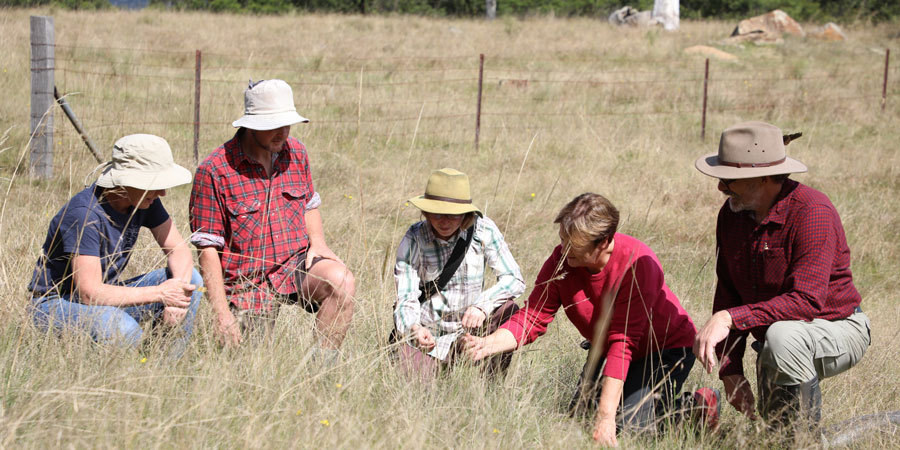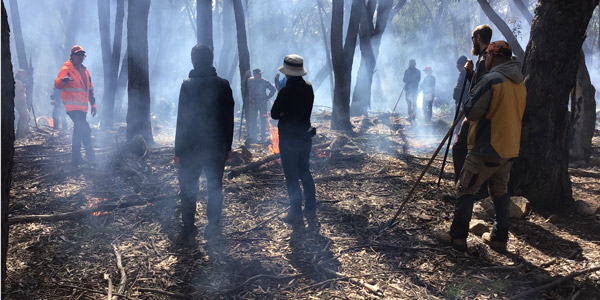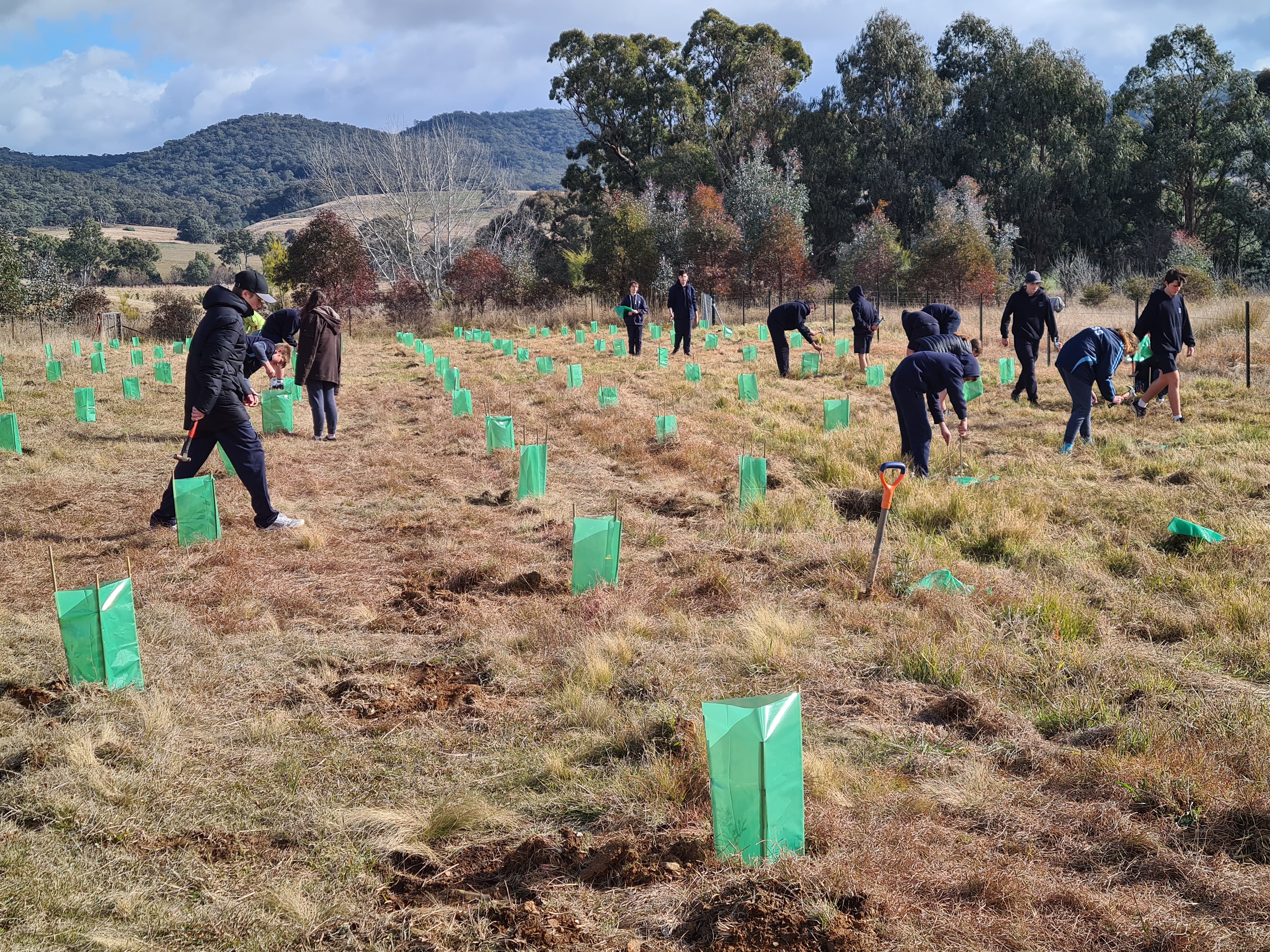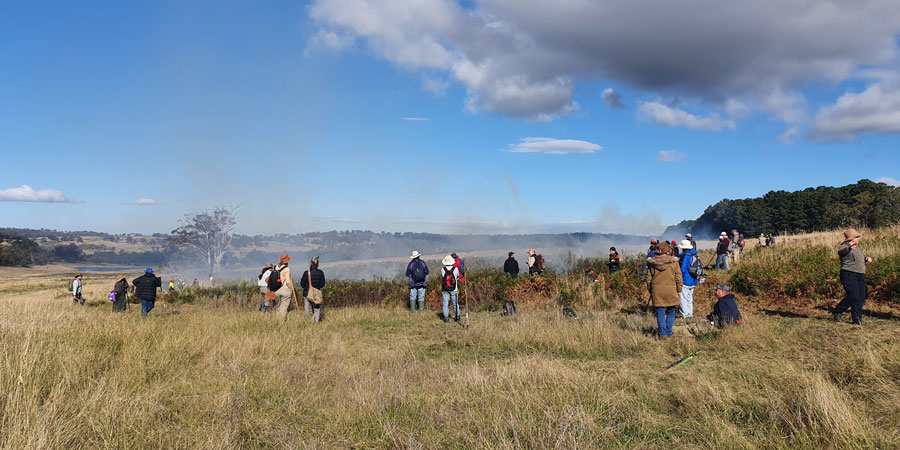About this case study
Heat
Communities
Climate smart agriculture
After years of drought, paddocks around the Capital region were full of dust, dams were dry and fodder was being trucked in at exorbitant cost.
We asked our network what they wanted to learn about climate change. Using the feedback, we designed and delivered a series of seven community engagement events.
Alex James, Coordinator,
Small Farms Network Capital Region
According to AdaptNSW’s snapshot of the Capital region, days are already getting hotter and rainfall patterns changing. Severe fire weather is projected to increase and, by 2060, the region can expect to warm by around 2°C.
“We need to adapt – but options for how people can adapt are not well known. We wanted to fill in the information gap with tips and techniques that could help small farmers,” says Alex James, Coordinator of the Small Farms Network Capital Region.
Since it was established in 2015, Small Farms Network Capital Region has hosted workshops, webinars and other events, “packed with practical information” to help small rural property owners surrounding Canberra.
“The data tells us small rural properties change ownership every seven years and small farmers often don’t have the knowledge they need to manage their farms,” Alex explains. “The Small Farms Network Capital Region aims to fill that knowledge gap by designing events that meet their needs at a time that suits them.”
The Network kick-started its climate resilience project with an online forum, in which small farmers were invited to explore topics of interest and identify gaps in knowledge. A series of webinars and workshops was designed in response.
The Pastures for the Future workshop, for instance, began with a morning webinar in which participants learnt how to manage temperate and tropical grasses that could withstand drought and best exploit summer rainfall. In the afternoon Helena Warren, who breeds Murray Grey cattle and teaches horse riding on her 330-acre farm, led paddock walks to point out pasture species and provide tips on drought-proofing and livestock selection. As one participant reflected: “I came away with some practical ideas for how to manage my pastures to best cope with future climate extremes.”

Forty people attended the two-day Cultural Burning Workshop at a farm just outside Bungendore with Den Barber from Yarrabin Cultural Connections. Den and a team of cultural burning practitioners gently guided the group through a series of immersive sessions which covered everything from mosaic burning to caring for country through responsible planning and preparation. One participant noted she felt “strengthened and enriched by the cultural experience and knowledge shared”. The workshop made the application of cultural burning “seem practically achievable rather than impossible”.
During the Trees for Tomorrow webinar, the Australian National University’s Dr David Freudenberger, a specialist in ecological restoration, talked about species adaptation and revegetation. Cameron Pensini from the Queanbeyan Palerang Regional Council talked participants through the heat map of the Queanbeyan Palerang district. Information was given to help them understand how to select the best trees for future revegetation projects.

Many of the workshops, held during the height of the Covid-19 pandemic, offered hidden benefits, giving people a chance to connect in times of great challenge.
“We felt like we were adapting to Covid as much as to climate change. To have a small group of people wandering around a paddock, learning about climate adaptation, felt like a huge achievement.”
In sharing practical skills to help small farmers to build resilience on their own properties, the Small Farms Network Capital Region has grown. “Covid forced us to hold online events – and this has allowed us to connect with small farmers all over New South Wales and Australia who are also looking for practical ways to adapt to climate change.”
The workshops showed people they can be proactive. We can learn skills to adapt and manage the impacts of climate change.
Alex James, Coordinator,
Small Farms Network Capital Region
Check out the Small Farms Network Capital Region’s resources, including webinars, YouTube videos and session summaries.
Case studies
The Restore and Renew webtool provides simple, science-backed guidance to improve restoration projects across New South Wales. In the Hunter Valley, it is helping to rebuild climate-ready, genetically diverse populations of the River Red Gum.

The Yass Area Network of Landcare Groups is is using the Restore and Renew webtool to guide seed selection for their Climate Ready Revegetation Project.

A community-led exhibition in Lismore challenged human-centred worldviews and revealed how Indigenous Knowledges can guide climate adaptation in profoundly different and powerful ways.
